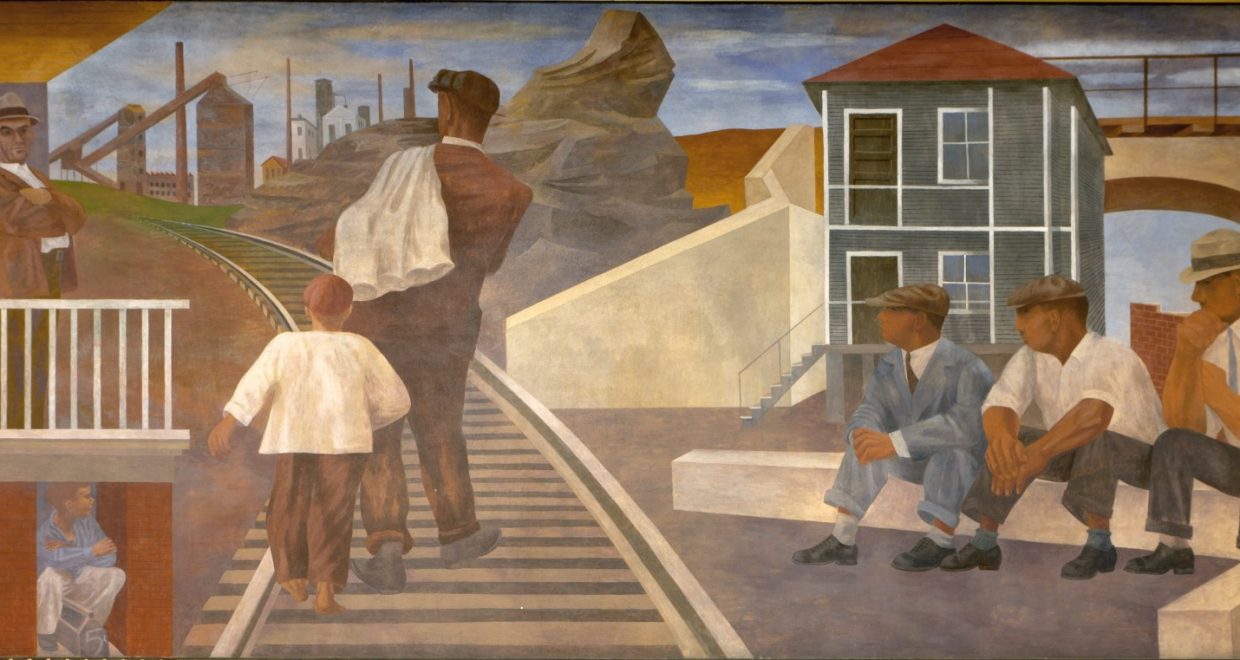Meet the Editorial Board for Modern American History: Q&A with Brian Balogh
For the latest entry of our blog series introducing the board members of the new Cambridge University Press journal, Modern American History, Brian Balogh shares this thoughts on the big issues that affect how we understand modern American history.
Brian Balogh is the Dorothy Danforth Compton Professor at the Miller Center and Professor of History at the Corcoran Department of History at the University of Virginia. He is founder and current chair of the National Fellowship Program which has funded over 150 dissertation completion fellowships for scholars studying American politics and public policy from an historical perspective. He shares his enthusiasm for American history as co-host of Backstory with the American History Guys. Balogh is the author of The Associational State: American Governance in the Twentieth Century (University of Pennsylvania Press, Politics and Culture in Modern America Series, 2015), and A Government out of Sight: The Mystery of National Authority in Nineteenth-Century America (Cambridge University Press, 2009). He is co-editor, with Bruce Schulman, of Recapturing the Oval Office: New Historical Approaches to the American Presidency (Cornell University Press, 2015).
 Why do you study modern American history and not something else?
Why do you study modern American history and not something else?
Because I live in modern America. Even with the advantages of proximity and “too much information,” I still find understanding the recent history of the United States elusive. I am simply not bold (or perhaps smart) enough to imagine understanding more distant times that have left fewer sources.
What are some of the challenges facing the field today? In what new directions might the field go?
I believe that an explosion of transnational information has placed a premium on rethinking ways in which the local is influenced and often placed in conversation with a broad array of geographic allegiances ranging from the regional to the transnational. While histories of the national remain important in our field, I believe that reconceptualizing the ways in which citizens have been influenced by shifting commitments and allegiances at a more proximate and more distant level than the national will be at the forefront of modern American history over the next decade.
If you could have been present in any “room where it happened,” what would you have witnessed?
I would have witnessed Franklin D. Roosevelt’s discussion with Frances Perkins and others about the nature and shape of the “social insurance” title of the Social Security Act. To what extent did FDR conceive of this as a bold new social agenda for all Americans? To what extent did he understand that voters would only support it if they believed that their contributions constituted personal savings accounts – which was never the case. To what extent did it concern him that it excluded a large number of Americans who needed its protection most, and to what extent did he believe that “salami slicing,” i.e. incrementalism, was the key to the success of any social program in the United States? The answer to these questions would shed a great deal of light on some of the most fundamental questions that historians have debated about liberalism in the United States across the twentieth century.
Modern American History’s first print issue will appear in 2018. Sign up for online content alerts and follow us on Twitter @ModAmHist. Article submissions and 250-word proposals for special features can be sent to mahist@bu.edu.
Main Image Credit: Mural “The Meaning of Social Security” by Ben Shahn located at the Wilbur J. Cohen Federal Building, Washington, D.C., Carol M. Highsmith Archive, Library of Congress






